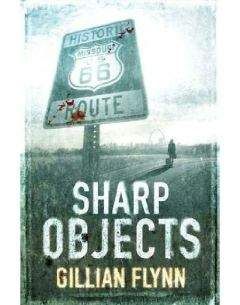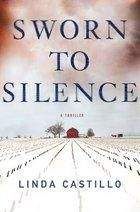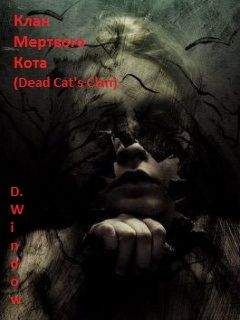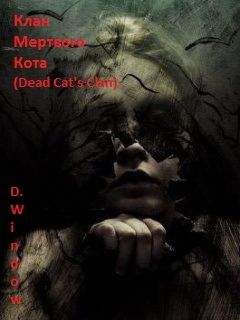Gillian Flynn - Dark Places
На электронном книжном портале my-library.info можно читать бесплатно книги онлайн без регистрации, в том числе Gillian Flynn - Dark Places. Жанр: Прочее издательство неизвестно, год 2004. В онлайн доступе вы получите полную версию книги с кратким содержанием для ознакомления, сможете читать аннотацию к книге (предисловие), увидеть рецензии тех, кто произведение уже прочитал и их экспертное мнение о прочитанном.
Кроме того, в библиотеке онлайн my-library.info вы найдете много новинок, которые заслуживают вашего внимания.
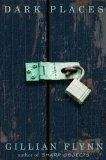
Gillian Flynn - Dark Places краткое содержание
Dark Places читать онлайн бесплатно
“It seems like it should have made more money,” I mumbled. I really wanted the book to make money, in an obsessive childish way—that feeling that if I wanted it enough, it should happen. It should happen.
“I know,” Jim Jeffreys said, having nothing more to say on the subject after six years. He watched me drink my wine in silence. “But in a way, Libby, this presents you with a really interesting new phase of your life. I mean, what do you want to be when you grow up?”
I could tell this was supposed to be charming, but it brought a burst of rage up in me. I didn’t want to be anything, that was the fucking point.
“There’s no money left?”
Jim Jeffreys shook his head sadly, and started salting his newly arrived steak, the blood pooling around it like bright Kool-Aid.
“What about new donations—the twenty-fifth anniversary is coming up.” I felt another splash of anger, for him making me say this aloud. Ben started his killing spree around 2 a.m. on January 3, 1985. The time stamp on my family’s massacre, and here I was looking forward to it. Who said things like that? Why couldn’t there have been even $5,000 left?
He shook his head again. “There’s no more, Libby. You’re what, thirty? A woman. People have moved on. They want to help other little girls, not …”
“Not me.”
“I’m afraid not.”
“People have moved on? Really?” I felt a lurch of abandonment, the way I always felt as a kid, when some aunt or cousin was dropping me off at some other aunt or cousin’s house: I’m done, you take her for a while. And the new aunt or cousin would be real nice for about a week, try real hard with bitter little me, and then … in truth it was usually my fault. It really was, that’s not victim-talk. I doused one cousin’s living room with Aqua Net and set fire to it. My aunt Diane, my guardian, my mom’s sister, my beloved, took me in—and sent me away—half a dozen times before she finally closed the door for good. I did very bad things to that woman.
“There is always a new murder, I’m afraid, Libby,” Jim Jeffreys was droning. “People have short attention spans. I mean, think how crazy people’re going about Lisette Stephens.”
Lisette Stephens was a pretty twenty-five-year-old brunette who’d disappeared on the way home from her family’s Thanksgiving dinner. All of Kansas City was invested in finding her—you couldn’t turn on the news without seeing her photo smiling at you. The story had gone national in early February. Nothing at all had happened in the case for a month. Lisette Stephens was dead, and everyone knew that by now, but no one wanted to be the first to leave the party.
“But,” continued Jim Jeffreys, “I think everyone would like to hear you’re doing well.”
“Awesome.”
“What about college?” he chewed off a hunk of meat.
“No.”
“What about we try to set you up in some sort of office job, filing and whatnot?”
“No.” I folded in on myself, ignoring my meal, projecting glumness. That was another of my mom’s words: glum. It meant having the blues in a way that annoyed other people. Having the blues aggressively.
“Well, why don’t you take a week and do some thinking on it?” He was devouring his steak, his fork moving up and down briskly. Jim Jeffreys wanted to leave. Jim Jeffreys was done here.
HE LEFT ME with three pieces of mail and a grin that was supposed to be optimistic. Three pieces, all looking like junk. Jim Jeffreys used to hand me bulging shoe boxes full of mail, most of them letters with checks inside. I’d sign the check over to him, and then the donor would receive a form letter in my blocky handwriting. “Thank you for your donation. It is people like you who let me look forward to a brighter future. Your truly, Libby Day.” It really did say “your” truly, a misspelling that Jim Jeffreys thought people would find poignant.
But the shoe boxes of donations were gone, and I was left with a mere three letters and the rest of the night to kill. I headed back home, several cars blinking their headlights at me until I realized I was driving dark. Kansas City’s skyline glimmered to the east, a modest, mid-rise Monopoly scatter, radio towers spiking here and there. I tried to picture things I could do for money. Things that grown-ups did. I imagined myself in a nurse’s cap, holding a thermometer; then in a snug blue cop’s uniform, escorting a child across the street; then wearing pearls and a floral apron, getting dinner ready for my hubby. That’s how screwed up you are, I thought. Your idea of adulthood still comes from picturebooks. And even as I was thinking it, I saw myself writing ABCs on a chalkboard in front of bright-eyed first graders.
I tried to come up with realistic occupations—something with computers. Data entry, wasn’t that some sort of job? Customer service, maybe? I’d seen a movie once where a woman walked dogs for a living, dressed in overalls and sweater sets and always holding flowers, the dogs slobbery and loving. I didn’t like dogs, though, they scared me. I finally thought, of course, about farming. Our family had been farmers for a century, right down to my mom, until Ben killed her off. Then the farm got sold.
I wouldn’t know how to farm anyway. I have memories of the place: Ben mucking through the cold spring mud, swatting calves out of his way; my mom’s rough hands digging into the cherry-colored pellets that would blossom into milo; the squeals of Michelle and Debby jumping on haybales in the barn. “It itches!” Debby would always complain, and then jump in again. I can never dwell in these thoughts. I’ve labeled the memories as if they were a particularly dangerous region: Darkplace. Linger too long in an image of my mom trying to jury-rig the blasted coffeemaker again or of Michelle dancing around in her jersey nightgown, tube socks pulled up to her knees, and my mind would jerk into Darkplace. Maniacal smears of bright red sound in the night. That inevitable, rhythmic axe, moving as mechanically as if it were chopping wood. Shotgun blasts in a small hallway. The panicked, jaybird cries of my mother, still trying to save her kids with half her head gone.
What does an administrative assistant do? I wondered.
I pulled up to my house, stepped onto a slab of sidewalk where someone had scraped “Jimmy Loves Tina” in the concrete decades ago. Sometimes I had flashes of how the couple turned out: He was a minor-league baseball player/she was a housewife in Pittsburgh, battling cancer. He was a divorced fireman/she was a lawyer who drowned off the Gulf Coast last year. She was a teacher/he dropped dead of an aneurysm at twenty. It was a good, if gruesome, mind game. I had a habit of killing off at least one of them.
I looked up at my rented house, wondered if the roof was lopsided. If the whole thing crashed in, I wouldn’t lose much. I owned nothing of value but a very old cat named Buck who tolerated me. As I hit the soggy, bowed steps, his resentful mews reached me from inside the house and I realized I hadn’t fed him today. I opened the door and the ancient cat moved toward me, slow and crimped, like a jalopy with a busted wheel. I didn’t have any cat food left—that had been on the to-do list for a week—so I went to the fridge, pulled out some slices of hardened Swiss cheese, and gave those to him. Then I sat down to open my three envelopes, my fingers smelling like sour milk.
I never made it past the first letter.Dear Ms. Day,I hope this letter reaches you, as you seem to have no website. I have read about you and followed your story closely over the years, and am very interested to hear how you are doing and what you are up to these days. Do you ever do appearances? I belong to a group that would pay you $500 just to show up. Please contact me and I will happily give you more information.Warmly,
Lyle WirthPS This is a legitimate business offer.
Stripping? Porn? Back when the book came out, with its section of Baby Day Grows Up photos, the most notable was me at seventeen, my wobbly, woman-breasts barely held in by a white-trash halter top. I’d received several propositions from fringe nudie mags as a result, none of them offering enough money to make me think hard. Even now five hundred wouldn’t quite do it, if these guys did want me to get naked. But maybe—think positive, Baby Day!—maybe it really was a legit offer, another of those mourners’ groups, needing me to show up so they had a reason to talk about themselves. Five hundred for a few hours of sympathy was a doable exchange.
The letter was typed, except for a phone number that had been inked at the bottom in assertive script. I dialed the number, hoping for voicemail. Instead, a cavernous pause came on the line, a phone picked up, but not spoken into. I felt awkward, as if I’d called someone in the middle of a party I wasn’t supposed to know about.
Three seconds, then a male voice: “Hello?”
“Hi. Is this Lyle Wirth?” Buck was nosing around my legs, anxious for more food.
“Who’s this?” Still in the background: a big loud nothing. Like he was at the bottom of a pit.
“This is Libby Day. You wrote me.”
“Ohhhhh holy cow. Really? Libby Day. Uh, where are you? Are you in town?”
“Which town?”
The man—or boy, he sounded young—yelled something at someone back behind him that included the phrase, “I already did them,” and then groaned into my ear.
“You in Kansas City? You live in Kansas City, right? Libby?”
I was about to hang up, but the guy started yelling hel-ooo-o? hel-ooo-o? into the line, like I was some dazed kid not paying attention in class, so I told him I did live in Kansas City and what did he want. He gave one of those heheheh laughs, those you-won’t-believe-this-but laughs.
“Well, like I said, I wanted to talk to you about an appearance. Maybe.”
“Doing what?”
“Well, I’m in a special club … there’s a special club meeting here next week, and …”
“What kind of club?”
“Well, it’s kind of different. It’s sort of an underground thing …”
I said nothing, let him twist. After the initial bravura, I could feel him get uneasy. Good.
“Oh crap, it’s impossible to explain over the phone. Can I, uh, buy you a coffee?”
“It’s too late for coffee,” I said, and then realized he probably didn’t even mean tonight, probably meant sometime this week, and then I wondered again how I’d kill the next four or five hours.
“A beer? Wine?” he asked.
“When?”
Pause. “Tonight?”
Pause. “Fine.”
LYLE WIRTH LOOKED like a serial killer. Which meant he probably wasn’t one. If you were chopping up hookers or eating runaways, you’d try to look normal. He was sitting at a grimy card table in the middle of Tim-Clark’s Grille, a humid dive attached to a flea market. Tim-Clark’s had become famed for its barbeque and was now being gentrified, an uneasy mix of grizzled old-timers and flop-haired dudes in skinny jeans. Lyle was neither: He was somewhere in his very early twenties, with wavy, mousy hair he’d tried to tame with too much gel in all the wrong places, so that it was half fuzzy, half shiny points. He wore wireless glasses, a tight Members Only windbreaker, and jeans that were skinny, but not in a cool way, just in a tight way. He had features that were too delicate to be attractive on a man. Men shouldn’t have rosebud lips.
He caught my eye as I walked toward him. He wasn’t recognizing me at first, just assessing me, this lady-stranger. When I’d almost reached the table, it clicked for him: the freckles, the baby-bird skeleton, the pug nose that got pugger the longer someone held eye contact.
“Libby!” he started, realized it was too familiar, and added, “Day!” He stood up, pulled out one of the folding chairs, looked like he regretted the chivalry, and sat back down. “Your hair’s blond.”
“Yup,” I said. I hate people who start conversations with facts— what are you supposed to do with that? Sure is hot today. Yes, it is. I peered around to signal for a drink. A miniskirted waitress with voluptuous black hair had her pretty backside to us. I table-tapped my fingers til she turned around, gave me a face that had to have been at least seventy years old, her pancake makeup pooling in the crepe of her cheeks, purple veins marbling her hands. Some part of her creaked as she bent down for my order, snuffing when I asked for just a PBR.
“The brisket is really good here,” Lyle said. But he wasn’t having it either, just sipping on the dregs of something milky.
I don’t eat meat, really, not since seeing my family sliced open— I was still trying to get Jim Jeffreys and his sinewy steak out of my head. I shrugged no, waited for my beer, looking around like a tourist. Lyle’s fingernails were dirty, first thing I noticed. The old waitress’s black wig was ajar: Strands of sweaty white hair stuck to her neck. She tucked a few back under as she grabbed a packet of fries sizzling beneath the heat lamp. A fat man sat by himself at the next table, eating short ribs and examining his flea-market purchase: a kitschy old vase with a mermaid on it. His fingers left grease marks on the mermaid’s breasts.
The waitress said nothing as she set the beer squarely in front of me and then purred over to the fat man, calling him Honey.
“So what’s with the club?” I prompted.
Lyle turned pink, his knee jittery beneath the table.
“Well, you know how some guys do fantasy football, or collect baseball cards?” I nodded. He let out a strange laugh and continued. “Or women read gossip magazines and they know everything about some actor, know like, their baby’s name and the town they grew up in?”
I gave a wary incline of the head, a be-careful nod.
“Well, this is like that, but it’s, well, we call it a Kill Club.”
I took a slug of beer, sweat beads popping on my nose.
“It’s not as weird as it sounds.”
“It sounds pretty fucking weird.”
“You know how some people like mysteries? Or get totally into true-crime blogs? Well, this club is a bunch of those people. Everyone has their crime that they’re obsessed with: Laci Peterson, Jeffrey MacDonald, Lizzie Borden … you and your family. I mean you and your family, it’s huge with the club. Just huge. Bigger’n JonBenét.” He caught me grimacing, and added: “Just a tragedy, what happened. And your brother in jail for, what, going on twenty-five years?”
“Don’t feel sorry for Ben. He killed my family.”
“Heh. Right.” He sucked on a piece of milky ice. “So, you ever talk with him about it?”
I felt my defenses flip up. There are people out there who swear Ben is innocent. They mail me newspaper clippings about Ben and I never read them, toss them as soon as I see his photo—his red hair loose and shoulder-length in a Jesus-cut to match his glowing, full-of-peace face. Pushing forty. I have never gone to see my brother in jail, not in all these years. His current prison is, conveniently, on the outskirts of our hometown—Kinnakee, Kansas—where he’d committed the murders to begin with. But I’m not nostalgic.
Похожие книги на "Dark Places", Gillian Flynn
Gillian Flynn читать все книги автора по порядку
Gillian Flynn - все книги автора в одном месте читать по порядку полные версии на сайте онлайн библиотеки My-Library.Info.
